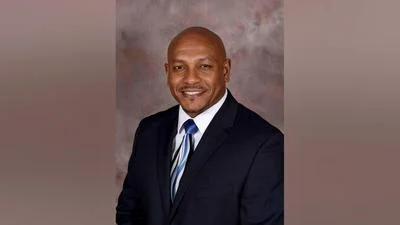Over the past several years, Carle Health, as an organization, has begun to explore where we are in both clinical care and company culture and our ability to offer a diverse, equitable and inclusive environment for patients and our team members.
This began with gathering information from team members from across the system to identify needs and explore solutions. Later, leaders worked with external expert, Diversity Science, to learn how to holistically establish fair practices and eliminate the effects of bias. We updated our Strategic Plan and Values to make Diversity, Equity and Inclusion a focus of our work. We also established a dedicated team to be accountable and dedicated to this work.
For nearly a year, Amy Delaney, PhD, has been leading the Carle Health Diversity, Equity and Inclusion (DEI) department to bring forward thinking and programming that will benefit team members, patients and members.
“DEI work is a journey – a personal journey for each of us and an organizational journey for Carle Health,” Delaney said. “It’s not easy, but discomfort is also necessary for growth.”
Delaney most recently served as a professor at Millikin University teaching health communication and conducting research on the role of both interpersonal and systemic racism in the maternal mortality disparity in the U.S. Her work focused on facilitating the change needed to progress a multi-faceted culture like Carle.
Throughout the past year, Delaney and many others have helped bring forward education, resources and collaboration to instill a greater foundation of knowledge and solidify the inclusive position of the organization. This included a focus on advancing the culture, leadership, structures and patient equity.
Recently, the system began a Gender Inclusive Care framework to better address patient equity in the LGBTQ+ community.
“Our goal as clinicians is to offer the most compassionate and complete care possible for every individual,” Napoleon Knight, MD, executive vice president and chief medical officer said. “Carle strives to uphold our values and behavior standards, which includes establishing fair and non-biased support for patients.”
In January, Carle launched a six-part education series to address the importance of gender inclusive care, communication strategies and clinical considerations. While tailored toward providers, this series is available to all Carle Health team members, community partners and advocates for gender inclusive care and service. It was important to offer evidenced-based education for team members to lay a clear foundation to improve interactions with patients.
Community partners play a significant role in how the health system advances the initiative as leaders in patient experience and the DEI team work closely to ensure programming reflects the health needs of LGBTQ+ patients.
“One of the most common requests from our community is to help find LGBTQ+ affirming healthcare providers and facilities,” the Board of Directors and staff of Uniting Pride of Champaign County shared. “We’re heartened to see Carle work towards enhancing LGBTQ+ affirming practices to ensure that kind of care is given to all patients. We are grateful to be asked to help train employees and recommend best practices. We look forward to seeing this kind of work continue.”
Also in January, Carle patients began to see an option to update their gender identity and preferences within the EPIC electronic medical platform. Through MyCarle, patients are now able to easily update their preferred name, gender and other identifiers that will enable more respectful interactions in clinical settings. Providers and team members interacting with patients are now seeing and using preferred names.
“We know underserved communities often find it harder to connect with a health system, which can aggravate as well lead to chronic health and untreated conditions,” Dr. Knight said. “Our commitment to doing this necessary work will ensure a higher quality of care for everyone.”
The gender inclusive care framework is an early opportunity in the long-term commitment to focus on people and build trust through inclusive care. Other internal and external enhancements, training and changes will develop to ensure all team members, patients and plan members are receiving the best care possible in the most culturally responsive way.





 Alerts Sign-up
Alerts Sign-up